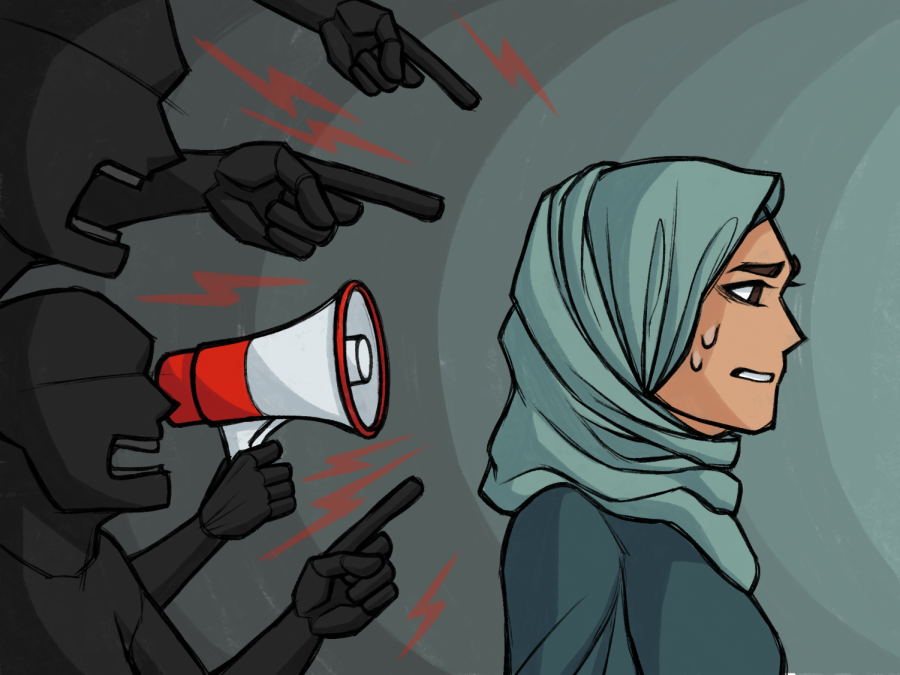OPINION: The Iranian morality police are an instrument of oppression
Iranian women are being targeted by the morality police under their unjust laws.
Following the death of Mahsa Amini, a 22-year old woman in Iran, Iranian women are burning their hijabs and cutting their hair in opposition to the government. A massive uprising across the world has brought many individuals to the attention of the Guidance Patrol, also known as the morality police. Many of their unjust laws are forced upon Iranian women, which result in them not being able to make their own personal choices concerning faith.
The Guidance Patrol is a religious police unit within the Law Enforcement Force of the Islamic Republic of Iran that is committed to arresting people who violate the Islamic dress code. According to the laws, all women must abide by the religious dress code of wearing a headscarf and covering themselves with appropriate clothing. Iran is basing their rules and regulations on the Islamic Sharia law, which is a religious law that outlines the principles for behavior that must be followed. The law is supposedly aimed toward both men and women, but in the present day, it is essentially targeting women. However, the issue lies in the regulations that are unclear for what is and is not appropriate for women, which can cause misinterpretations within the force about what is deemed appropriate and can bring in personal biases from officers.
One of the main aspects the morality police is focused on is the act of women wearing the headscarf. Under the administration of the current president, the morality police have expanded their presence in cities, and as a result, Iranian women have gone against the laws that were set by wearing garments that would not be considered appropriate and as well as exposing their hair. Additionally, there has been no clear regulations on the appropriate dressing an individual can wear. The laws are mostly enforced by men, which puts bias on what they consider to be appropriate. Iranian women are fighting for the right to make their own religious decision and although the act of wearing the hijab is a mandatory religious condition, people should not be the ones to judge the religious status of another individual. It is a personal decision people must make for themselves, and the public should not be the one to enforce that.
In a situation where an individual is detained by the morality police, one will be given a warning, or they can be taken to an area where a mandatory session is held to learn about religious values and the appropriate dressing they are supposed to abide by. It is important for everyone to be educated and aware about the religious aspects. However, there should not be a patrol dedicated to enforcing these regulations. Unfortunately, this did not happen in the case of Amini, who was arrested by the morality police and died as a result of not wearing her headscarf properly. With the many uprising of protests, the Iran morality police have not been seen on the streets.
The acts of the morality police have inevitably had an impact on the Iranian women and the act of wearing the hijab. The hijab is an important aspect in the Islam, but morality should not be something that is physically seen or that is worn. It is something that is internal and something that connects to one’s spiritual self. A group of officers, who are predominantly male, should not be the ones to judge or accuse women of their religious status.


